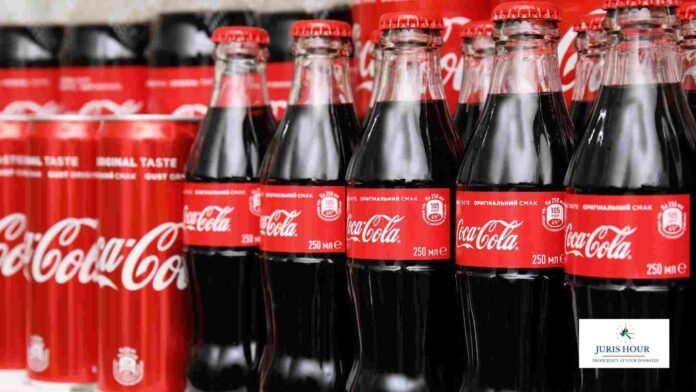The Gujarat High Court while quashing the penalty worth Rs.25.53 crore against Hindustan Coca-Cola Beverages Pvt. Ltd., upheld the ruling of the Gujarat VAT Tribunal that the company had not collected sales tax from consumers during the period it enjoyed exemption under the Gujarat Sales Tax Act, 1969.
The Bench of Justice Bhargav D. Karia and Justice Pranav Trivedi held that simply because the sale has been made inclusive of tax, if any, it is difficult to infer that the assessee has collected some amount by way of tax.
The bench noted that there was no evidence — direct or indirect — to prove that the soft drink manufacturer had collected sales tax from distributors or consumers during its exemption period, thereby rendering the penalty imposed by the Sales Tax Department unsustainable.
The case stemmed from assessments for the years 2000–2003, when the company’s Goblej plant in Kheda district was granted a sales tax exemption under Section 49(2) of the Gujarat Sales Tax Act as part of an industrial incentive scheme.
The Department alleged that despite the exemption, the company had indirectly collected ₹44.74 crore as sales tax by including the tax element in its sale price, instead of passing on the benefit to consumers. A penalty of ₹25.53 crore was imposed under Section 46(1)(i) read with Section 56(1) for alleged unauthorized collection.
The department contended that the company maintained dual accounting systems — Indian GAAP and US GAAP — under which tax components like “sales tax expenses” and “deferred sales tax assets” appeared. The selling price remained unchanged before and after the exemption period, showing that tax was built into the price. Internal “Jaguar” and “Scala” software reports indicated tax-inclusive pricing despite invoices reflecting ‘Nil’ tax columns.
Hindustan Coca-Cola maintained that no tax was charged or collected separately from customers; invoices explicitly stated that sales were tax-exempt. Entries under US GAAP were notional and intended solely for reporting to its U.S.-based parent entity, later reversed in Indian books (IGAAP). Product pricing was market-driven and uniform across states, unrelated to local tax rates or exemptions. Distributors’ affidavits corroborated that no sales tax was ever charged during the exemption period.
The Gujarat VAT Tribunal had earlier set aside the penalty, holding that there was no direct or indirect proof of tax collection. Invoices confirmed exemption, and uniform pricing did not equate to tax recovery. US GAAP entries could not be used as evidence of real collection.
The Bench noted that no material evidence—neither invoices, accounting records, nor statements—substantiated the Revenue’s allegations. The accounting treatment under US GAAP, it said, had no bearing on the company’s tax liability under Indian law.
Finding the Revenue’s case based on presumptions rather than facts, the Court held there was no violation of Section 56(1) of the Sales Tax Act.
The court dismissed the state’s appeals, quashed the penalty of Rs. 25.53 crore, and confirmed that no tax collection occurred during the exemption period.
Case Details
Case Title: State Of Gujarat Versus Hindustan Coca Cola Beverages Pvt. Ltd.
Case No.: R/Tax Appeal No. 2177 Of 2010
Date: 01/10/2025
Counsel For Petitioner: Utkarsh Sharma
Counsel For Respondent: Kunal Nanavati
Read More: MCA Portal Glitches Continue to Trouble Professionals Despite Deadline Extension

